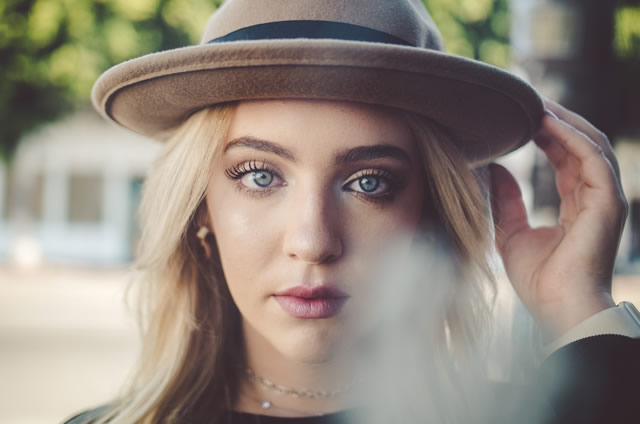UV light is a form of radiation. While it is emitted from man-made sources such as tanning beds, lasers, and welding machines, the main source of UV exposure, for most people, comes directly from the sun. Factors That Increase Your Risk of UV DamageAlthough anyone can sustain damage to their eyes and skin from prolonged sun exposure, certain factors increase risk, including the following: History of Cataract Surgery If you have had cataract surgery, you may have increased sensitivity to UV light. The eye’s natural lens protects the retina from UV rays. Usually, during cataract surgery, the natural lens is removed and replaced with an intraocular lens. Most intraocular lenses are now UV absorbent, but if you had the surgery several years back, older lenses might not provide as much protection. Light-Colored Eyes People with blue and green eyes may have a higher risk of light sensitivity. Dark eyes have more melanin, which protects from the sun. Having light-colored eyes means less melanin and less sun protection. Certain Medications Taking certain medications can also increase your risk of eye damage due to UV light. Medications, such as some diuretics, sulfa drugs, and certain antibiotics can increase your sensitivity to damage from the sun’s rays. High Altitude UV light levels tend to be greater at higher altitudes. So, if you live or spend time outdoors at a high altitude, you are at greater risk of UV damage. Protecting Your Eyes from Skin CancerIn addition to increasing your risk of certain eye diseases, prolonged sun exposure also increases your chances of developing skin cancer around your eyes or on your eyelids. The skin on your eyelid is thinner than other areas of the body, which makes it more susceptible to damage from UV light. You can still enjoy spending time outdoors while decreasing the risk of UV damage to your eyes. One of the most important things you can do to protect yourself is to wear sunglasses when you go outside during the day. Keep the following factors in mind when selecting shades:
It’s also essential to protect the skin around your eyes. A little eye-safe sunscreen around the eyes can help prevent sunburns and sun damage. When applying sunscreen near the eye, avoid getting too close to the lid margin. There are also eye creams on the market that provide sun protection. Finally, wear a wide-brimmed hat, preferably with UV protection, in addition to your sunglasses and sunscreen. This will serve as another line of defense against UV rays for your eyes and the skin surrounding them. Tanning Beds & Eye SafetyUsing a tanning bed exposes you to UV light and increases your risk of skin cancer and eye damage. Several medical organizations in the U.S. have come together to create awareness about the negative effects of indoor tanning, as indoor tanning is not any safer than being out in the sun.
In fact, according to the American Academy of Ophthalmology (AAO), tanning beds emit UV light levels up to 100 times what you get from the sun. UV exposure from indoor tanning can lead to damage to both the internal and external eye structures. With that in mind, it’s best to skip indoor tanning altogether. If you do choose to use a tanning bed, it’s vital to take some precautions to protect your eyes, such as:
Most tanning salons provide safety goggles for free. Make sure your tanning goggles fit properly and provide 100 percent UV protection. Whether you are swimming or hanging out at the park, spending time outside can be wonderful. It’s important to do it safely to avoid damage to your eyes from the sun. Remember, it’s not just adults that need to take precautions against UV damage to the eyes. Children are also susceptive to damage from prolonged sun exposure and should follow the above suggestions. If you have any questions about your eye health or protection or you would like to schedule an appointment with one of our eye doctors, please call our office at 508-746-8600. We hope you found this information valuable! Please check back with us soon for our next post, Ultraviolet Light & Vision: Separating Misconception from Facts, as we continue with Ultraviolet Awareness & Healthy Vision Month. Enjoy the outdoors safely! Comments are closed.
|
EYE HEALTH BLOGCategories
All
Archives
July 2024
|
|
Kadrmas Eye Care New England
55 Commerce Way, Plymouth, MA 02360
14 Tobey Road, Wareham, MA 02571 133 Falmouth Road (Rt 28), Mashpee, MA 02649 |
Phone Number:
1-508-746-8600 Hours: Monday through Friday — 8 AM – 4:30 PM |


 RSS Feed
RSS Feed
